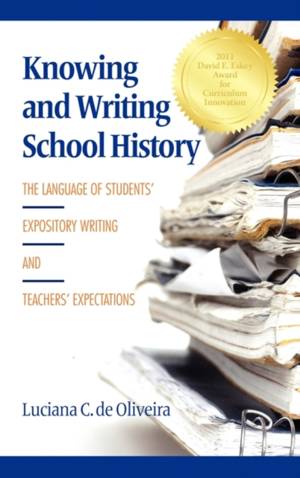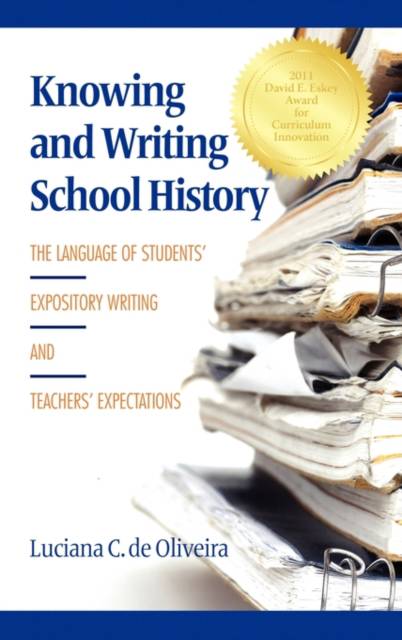
- Retrait gratuit dans votre magasin Club
- 7.000.000 titres dans notre catalogue
- Payer en toute sécurité
- Toujours un magasin près de chez vous
- Retrait gratuit dans votre magasin Club
- 7.000.0000 titres dans notre catalogue
- Payer en toute sécurité
- Toujours un magasin près de chez vous
Knowing and Writing School History
The Language of Students' Expository Writing and Teachers' Expectations
Luciana de OliveiraDescription
Because school history often relies on reading and writing and has its own discipline-specific challenges, it is important to understand the language demands of this content area, the typical writing requirements, and the language expectations of historical discourse. History uses language is specialized ways, so it can be challenging for students to construct responses to historical events. It is only through a focus on these specialized ways of presenting and constructing historical content that students will see how language is used to construe particular contexts.
This book provides the results of a qualitative study that investigated the language resources that 8th and 11th grade students drew on to write an exposition and considered the role of writing in school history. The study combined a functional linguistic analysis of student writing with educational considerations in the underresearched content area of history. Data set consisted of writing done by students who were English language learners and other culturally and linguistically diverse students from two school districts in California. The book is an investigation of expository school history writing and teachers' expectations for this type of writing. School history writing refers to the kind of historical writing expected of students at the pre-college levels.
Spécifications
Parties prenantes
- Auteur(s) :
- Editeur:
Contenu
- Nombre de pages :
- 172
- Langue:
- Anglais
Caractéristiques
- EAN:
- 9781617353376
- Date de parution :
- 23-02-11
- Format:
- Livre relié
- Format numérique:
- Genaaid
- Dimensions :
- 156 mm x 234 mm
- Poids :
- 417 g

Les avis
Nous publions uniquement les avis qui respectent les conditions requises. Consultez nos conditions pour les avis.






